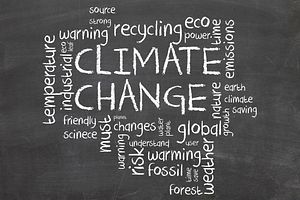With the Warsaw Climate Change Conference 2013 now behind us, it is quite poignant to read that Taiwan’s climate envoy was excluded from 195 nations that met last month for a global summit on climate change, even though the island nation is one of the leading economies in the world, a thriving democracy in East Asia and willing to commit to reducing its carbon emissions proactively.
In 1992, countries joined an international treaty, the United Nations Framework Convention on Climate Change (UNFCCC), to cooperatively consider what they could do to limit average global temperature increases and the resulting climate change, and to cope with whatever impacts were, by then, inevitable. By 1995, countries realized that emissions reductions provisions in the Convention were inadequate. They launched negotiations to strengthen the global response to climate change, and two years later adopted the Kyoto Protocol. There are now 195 Parties to the Convention and 192 Parties to the Kyoto Protocol. Regrettably, Taiwan has been excluded from the UNFCCC and its related mechanisms.
Taiwan is globally recognized as one of the most advanced countries in the fields of seismic monitoring and has the highest concentration of monitoring stations, with about 800 currently in operation. This system evaluates and distributes critical information about earthquakes immediately after they strike, and is currently the fastest of its kind in the world. The exclusion of Taiwan from the UNFCCC not only runs counter to the UNFCCC’s mission to make its global coverage and data more complete, it also cuts Taiwan out of the information loop and leaves it open to the effects of natural disasters. The challenges posed by climate change have continued to grow during the past decade. No country is immune to the impact of global warming, and so it is of extreme importance that we address these challenges in a global manner to ensure our planet’s sustainable development.
Faced with severe challenges posed by climate change, Taiwan’s efforts over the past few years to reduce carbon emissions have already yielded concrete results. Taiwan has also aggressively initiated a plan to build a “low carbon and sustainable homeland.” As part of this plan, 52 rural villages and three cities have been selected as model communities with low-carbon and sustainable environments, aiming to encourage the people of Taiwan to actively participate in the development of such a homeland. Meanwhile, Taiwan is promoting electric motorcycle battery exchange systems, geographic information systems (GIS) for bicycle road networks, and hybrid cars. It also plans to replace all traditional buses in urban areas with electric buses in the coming decade, to gradually establish a low-carbon transportation infrastructure.
Although Taiwan has been excluded from the UNFCCC and its related mechanisms, it remains keen to join international efforts aimed at saving energy and reducing carbon emissions. And although Taiwan has yet to be allowed to participate as an observer in the UNFCCC process, it still aspires to be a part of global efforts towards climate change mitigation and adaptation. With its technological know-how and experience, Taiwan can be an important partner. The time has come to allow it membership, and the United States should assist Taiwan in engaging in the activities and mechanisms of the UNFCCC as well as the Kyoto Protocol. We deserve a better planet and 23 million Taiwanese are rolling up their sleeves and eager to participate in the global climate regime and to help safeguard our planet. Taiwan’s participation in the UNFCCC process would conform to the spirit and purpose of the Convention, which acknowledges “the global nature of climate change calls for the widest possible cooperation.”
Taiwan has a great deal to offer the international community in a vast number of areas. Its prolonged exclusion from the UNFCCC serves neither its interests nor those of the global community. Taipei has actively sought international support to expand its international space, and has initiated pragmatic and constructive dialogue with mainland China, achieving significant results. In 2009, member countries of the United Nations for the first time invited Taiwan to formally participate in the World Health Assembly (WHA) as an observer. In September 2013, Taiwan was invited to attend the 38th Session of the Assembly of the International Civil Aviation Organization (ICAO) as a guest of the president of the Council. Taiwan’s participation in these two bodies is of great symbolic meaning.
The 20th session of the Conference of the Parties to the UNFCCC is expected to take place in December 2014 in Peru. The international community should take into account the precedents of WHA and ICAO and allow Taiwan to substantively participate in the UNFCCC. We now have just one more shot, next year in Peru, to include Taiwan in the mutual assistance system. Let Taiwan join the UNFCCC so that the nation can contribute to climate change dialogue on the global stage.
Kent Wang is advisory commissioner for the Overseas Chinese Affairs Council of Republic of China (Taiwan) in the United States, who publishes frequently on the Taiwan issue in Sino-American relations, as well as other topics on East Asian international politics and regional security.

































